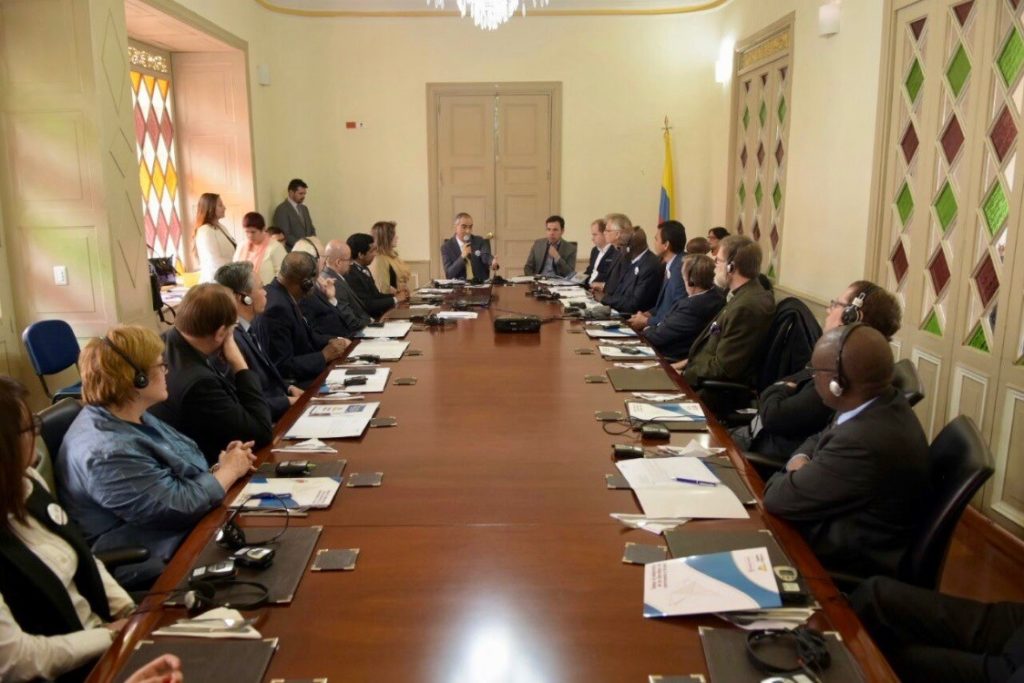This year the “Conference of Secretaries of Christian World Communions”, to give the official English title, met from 6th to 10th November 2017 in Bogota, Colombia. It brought together the general secretaries and secretaries of the 18 largest and/or most important church denominations (church families). The representative for the Old Catholic Churches of the Union of Utrecht is Bishop Dr. Harald Rein from Switzerland. He has been attending these meetings since 2009 in his capacity as secretary of the International Old Catholic Bishops Conference.
There were three main themes this year: the peace process in Colombia; the future composition of the Conference; and, as always, mutual exchanges about developments, joys and concerns within the denominational families represented, together with bilateral ecumenical dialogues.
The peace process in Colombia
is making progress. The long-standing civil war between the military, rebels, private armies and drug gangs has ended. The people want peace. A sense of re-awakening and economic prosperity is tangible throughout the county. Even so, society continues to be divided on the question of whether a general amnesty for all – without distinction – is really the best model for bringing closure to the past and enabling real reconciliation. The Conference representatives met for talks with government representatives, victims and perpetrators.
The future composition of the Conference
has been under discussion for years. The Conference has existed for over 60 years and during that time the church scene has changed. There are new churches and denominational families that are not yet represented at the Conference and some former members that no longer attend and/or no longer have the same importance/size as before. In addition, new movements and groups have emerged (e.g. Global Christian Forum with a focus on ecology). Their representation at the Conference cannot be treated in the same way as that of the classical, established churches. In fact, a distinction is now made here between “old” and “new” churches or movements. The ecumenical movement itself, with its present groupings and categories, is undergoing a massive upheaval. As a result of migration and globalization, every denomination will soon be represented in every location on earth. This development has led to a shift in the themes raised at the Conference. For example, the number of churches interested in the institutional unit of the Church (local church ecclesiology) is declining; only the Old Catholics, the Orthodox and the Roman Catholics find the topic relevant. Evangelism, mission, diversity and the conservation of creation, and joint diaconal/pastoral/social projects, have become the matters of the moment.
Lift your head from the water!
In other words, we are not to wallow in the little world of our own denominational life, but lift our eyes to look beyond our boundaries and see what is happening in the wider world, and especially in other churches. This helps us to put our own teachings, views and traditions in a new light and to question them. ‘Learn from each other!’ is an excellent byword because so many of the developments, joys and concerns within our churches are identical. In almost all churches, questions about the ordination of women and the blessing of same-sex partnerships are taking up enormous space. Then again, in West Africa, there are questions about polygamy which arise in cases of conversion to Christianity and what should happen to the existing family relationships. Here, the theological opinions and solutions are very diverse, and depend on the cultural area – and unfortunately can even result in splits in the church.
Maja Weyermann, Information Officer

